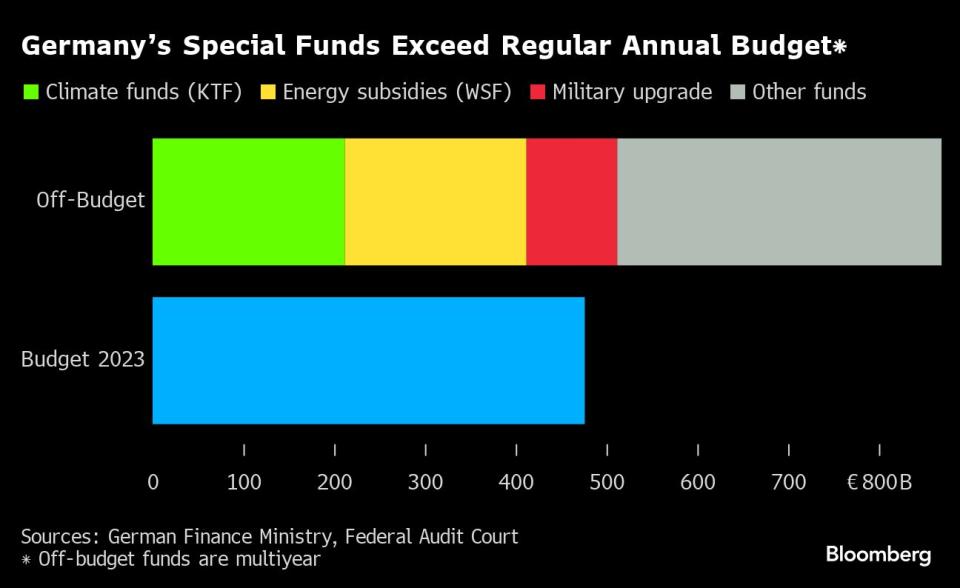German Budget Lawmakers Approve Net New Borrowing of €39 Billion
(Bloomberg) -- German budget lawmakers late Thursday approved the federal government’s delayed finance plan for 2024, which restores a constitutional limit on net new borrowing for the first time since 2019.
Most Read from Bloomberg
YouTube and Spotify Won’t Launch Apple Vision Pro Apps, Joining Netflix
Putin Orders Hunt for Property of Russian Empire, Soviet Union
China’s $6.3 Trillion Stock Selloff Is Getting Uglier by the Day
Stocks Power Ahead With S&P 500 Set for a Record: Markets Wrap
The plan foresees net new debt of €39 billion ($42.3 billion) this year, according to documents seen by Bloomberg News. It was signed off by lawmakers in the lower house of parliament’s budget committee, the latest step in a process that should lead to final approval in the upper house in early February.
Chancellor Olaf Scholz’s three-party ruling alliance was thrown into turmoil in November after a critical funding tool was struck down by the nation’s top court. They were forced into a radical overhaul of this year’s budget, delaying its passage through parliament.
The Constitutional Court judgment upended a decades-old practice of using special pots to fund investments and called into question tens of billions of euros in debt-financed spending.
Scholz and his ministers have sought to reassure voters that the government will stick firmly to its goals despite the budget chaos, including supporting the climate transition and backing Ukraine’s defense against Russia’s invasion.
The chancellor left open the option of suspending the so-called debt brake again this year if needed to secure projects like aid for Ukraine, although Finance Minister Christian Lindner said that he doesn’t see such a scenario in an interview with Bloomberg Television in Davos.
Read more: Germany Leaves Door Open to Breaching Debt Rules Again Next Year
In part because of the budget strife, the three parties in Scholz’s coalition — his Social Democrats, the Greens and the Free Democrats — have seen their opinion poll ratings plunge to historic lows, just over halfway into their four—year term.
The anti-immigrant Alternative for Germany party, or AfD, has been able to tap into an increasingly bleak mood among German voters to rise to second in the polls, behind only the conservative CDU/CSU group.
--With assistance from Nicholas Comfort.
Most Read from Bloomberg Businessweek
©2024 Bloomberg L.P.




